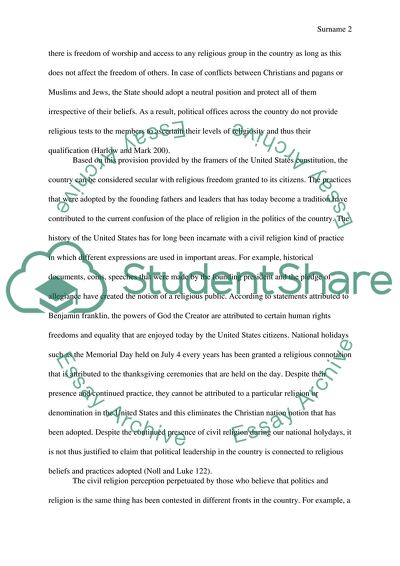Cite this document
(The Position of Religion in Politics Coursework Example | Topics and Well Written Essays - 1750 words, n.d.)
The Position of Religion in Politics Coursework Example | Topics and Well Written Essays - 1750 words. https://studentshare.org/religion-and-theology/1831943-freedom-of-religion
The Position of Religion in Politics Coursework Example | Topics and Well Written Essays - 1750 words. https://studentshare.org/religion-and-theology/1831943-freedom-of-religion
(The Position of Religion in Politics Coursework Example | Topics and Well Written Essays - 1750 Words)
The Position of Religion in Politics Coursework Example | Topics and Well Written Essays - 1750 Words. https://studentshare.org/religion-and-theology/1831943-freedom-of-religion.
The Position of Religion in Politics Coursework Example | Topics and Well Written Essays - 1750 Words. https://studentshare.org/religion-and-theology/1831943-freedom-of-religion.
“The Position of Religion in Politics Coursework Example | Topics and Well Written Essays - 1750 Words”. https://studentshare.org/religion-and-theology/1831943-freedom-of-religion.


